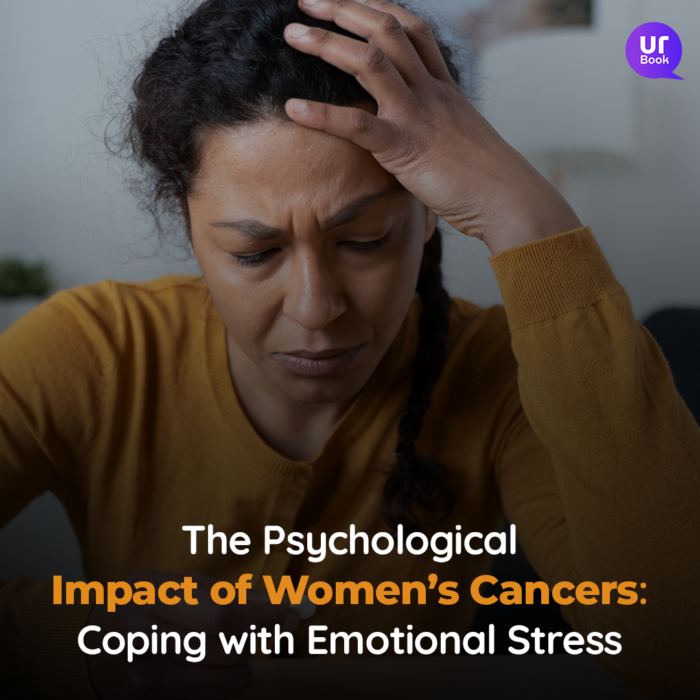
Gynaecological cancers, or cancers that start in the female reproductive parts, are not just diseases of the body. They are also of the mind. Being diagnosed with cancer comes with trauma, turmoil and existential plight.
First, you need to know that you are not alone and that what you feel is normal. Up to 90% of women find it distressing to cope with the emotional stress of cancer.
The diagnosis causes shock, disbelief, confusion, fear, and anxiety, and because you’re often in pain and severely ill, it can also cause depression.
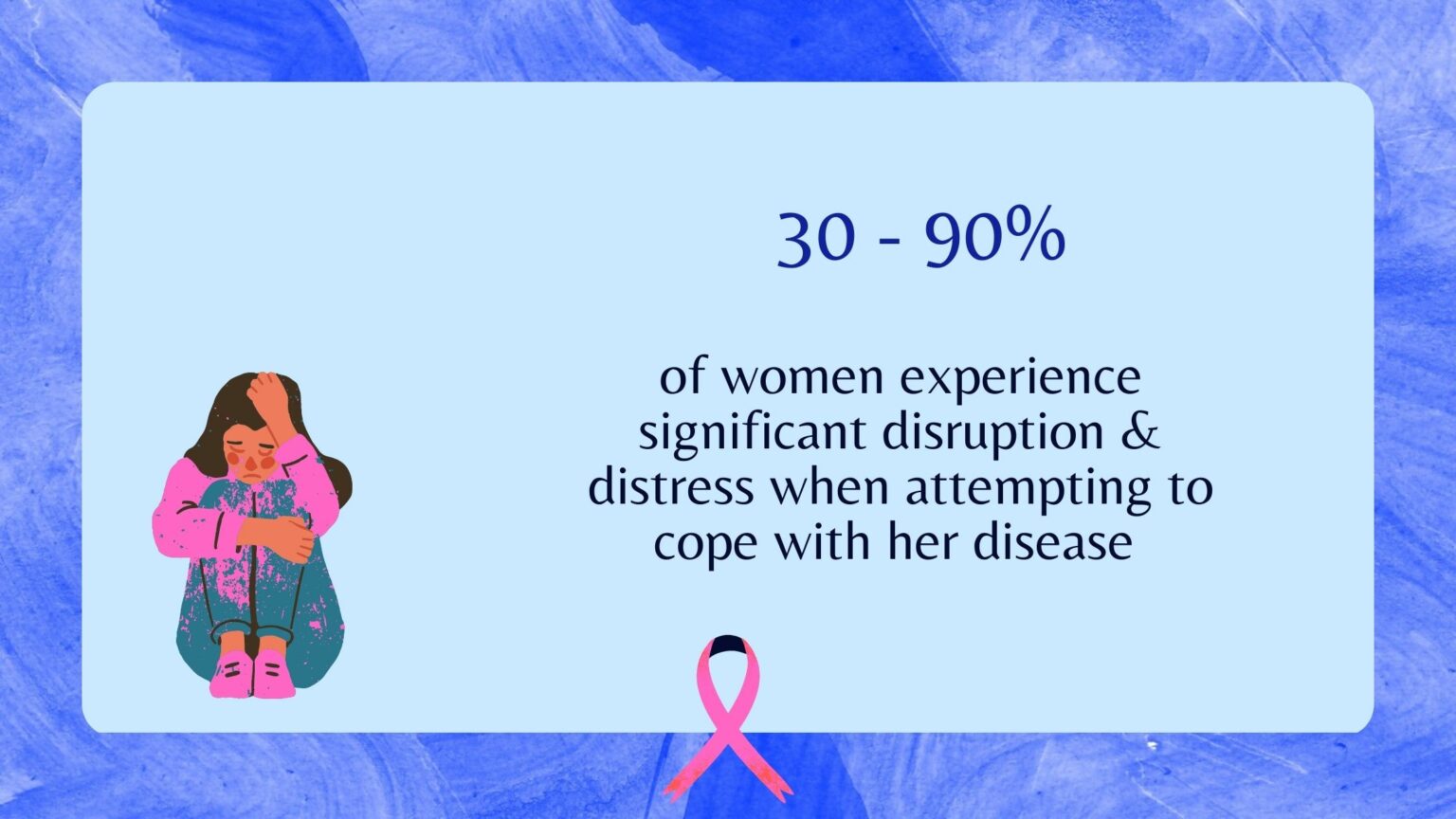
That brings us to the second point of this article: we explore the psychological impact and stress of gynaecological cancers and then move on to coping strategies.
Types of emotional stress that come with gynaecological cancers
Cancer and its treatment affect you physically. You can feel pain, sleeplessness, fatigue, appetite loss, and sexual disinterest. But it also affects your mental health. 65.7% of women with gynaecological cancers feel a strong sense of helplessness and abandonment.
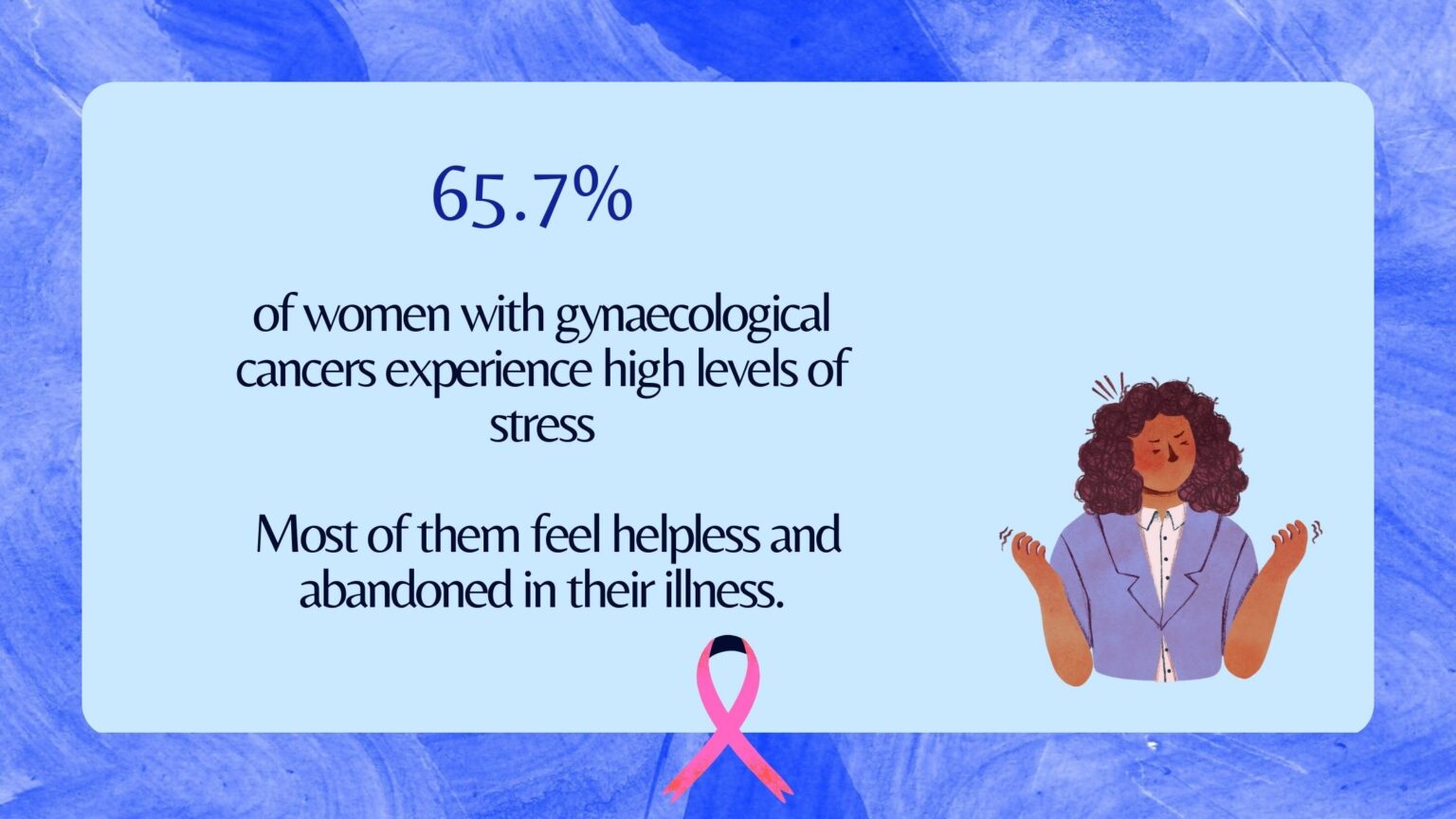
1. Fear and anxiety
The most common emotional reaction to a cancer diagnosis is fear and anxiety. Women worry about prognosis, treatment options, and how the malignancy will impact their body and their loved ones.
The uncertainty of the future and the loss of control over lives is overwhelming, which manifests as anxiety, which translates into:
- Trouble concentrating
- The heart beating faster
- Headaches or muscle pains
- Sleeping too much or too little
- Shakiness, weakness, or dizziness
- Tight feeling in the throat and chest
- Not eating enough or eating too much
- Feeling sick in the stomach or having diarrhoea.
2. Depression and mood changes
Feeling sad, irritable, or even emotionally numb is another common psychological impact of women’s cancer. You may also struggle with guilt or worthlessness. All of this is natural. About 23% of gynaecological cancer patients have a major depressive disorder.
If you live with cancer and have suddenly lost interest in activities or noticed changes in appetite or sleep patterns, along with persistent feelings of sadness or hopelessness, then these may be symptoms of depression. Consider seeking professional help.
3. Body image issues
Chemotherapy, radiation, and surgery—all treatments for cancers of the vulva, cervix, vagina, ovaries, fallopian tubes, and uterus—can cause changes in physical appearance. These can range from hair loss, weight gain or loss, hysterectomy, vaginal scarring, and even disfigurement due to body parts being removed or surgically altered.
All of them impact your body image. You feel self-conscious or embarrassed about your appearance, which leads to social isolation and decreased self-esteem.
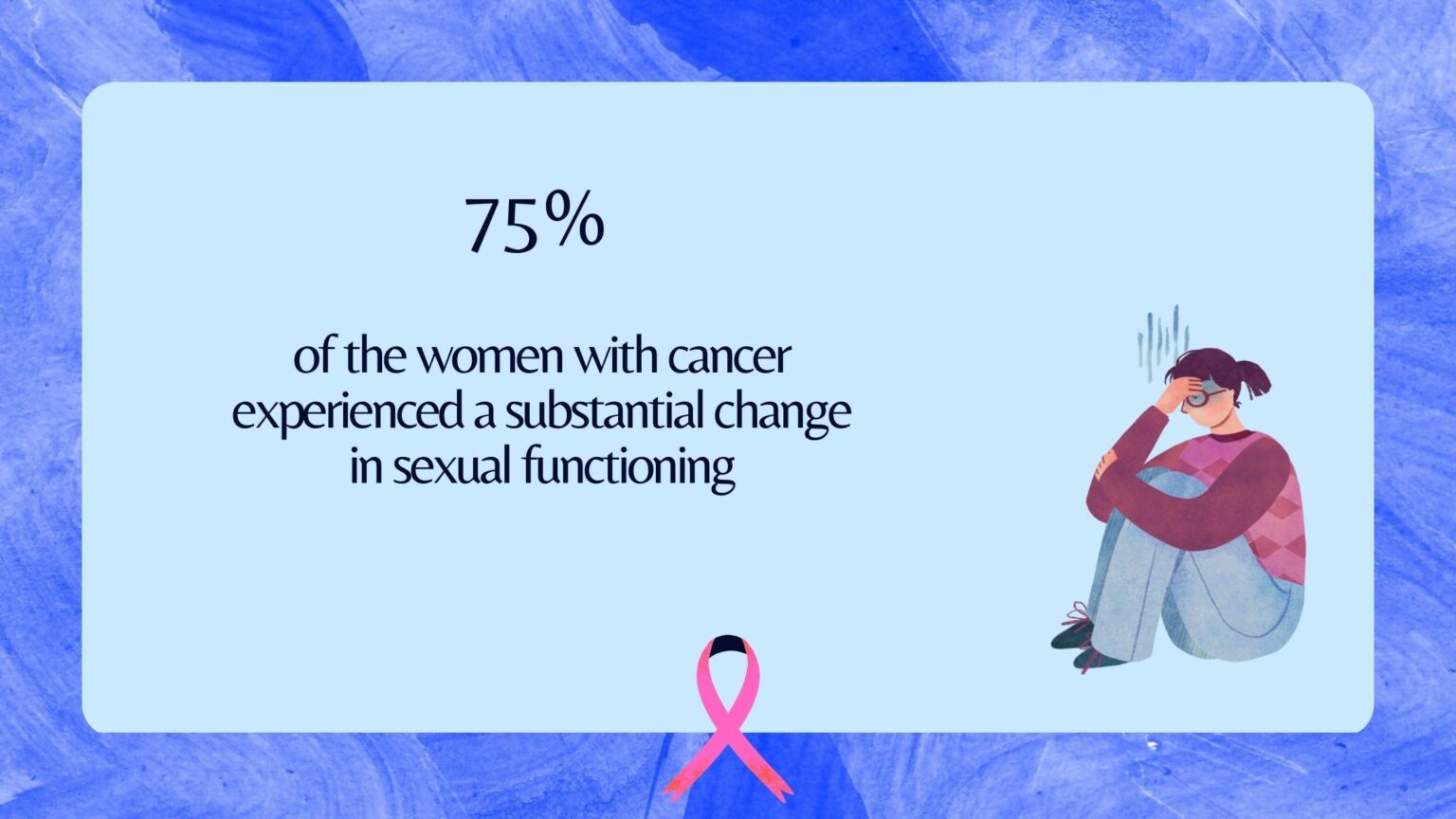
There is another layer to gynaecological cancers. They can make you question sexual identity and decrease feelings of intimacy, irrespective of age and partnership status. And if your doctor doesn’t discuss such issues, it can make you think that these feelings are abnormal. They are not.
What’s the impact of emotional stress on cancer?
There is no irrefutable proof that chronic stress can cause cancer to get worse (progress) and spread (metastasize). That said, research does show that depression can affect the course of cancer treatment and recovery. Moreover, fear and anxiety harm physical health, including immune function and pain perception.
So, part of your treatment process should be using positive ways to cope with emotional stress, such as seeking support from friends and family. Don’t avoid or suppress your anxiety or depression. Research proves that avoidance leads to a poorer quality of life and greater distress.
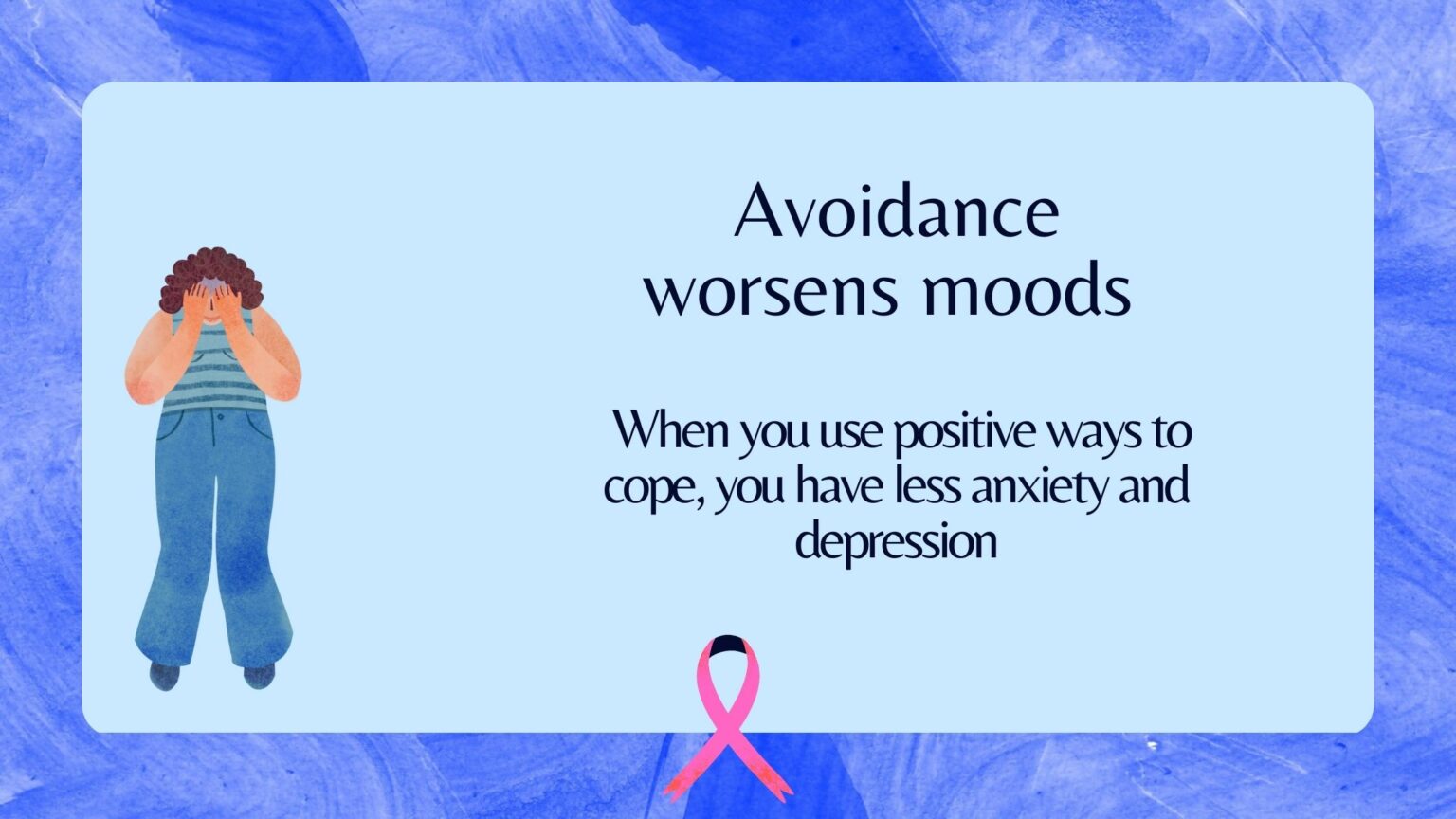
7 Coping Strategies for Emotional Stress Of Gynaecological Cancer
There are several coping strategies that women can use to manage the emotional stress of gynaecological cancers. However, social support from family members remains the mainstay. It is the best way to deal with the psychological fallout of diagnosis and treatment.
1. Seek support
Be it your loved ones, mental health professionals, or support groups, reach out to people. It can help you feel less isolated and more understood. Women who have social support have lower levels of stress-related hormones. Moreover, talking to others is a wonderful way to accept your changed appearance and come to terms with body image issues.
Who can you talk to?
Anyone you’re comfortable with and know well: a friend, a family member, or even your partner.
Some women find online communities and self-help groups to be particularly useful. If you find it easier to talk to someone who is not so close to you, a doctor, a nurse, a counsellor, or even a spiritual leader are good options. A clinical trial has shown that even 3 sessions with a mental health expert can reduce depression in people with cancer.
2. Practice mindfulness
Meditation and deep breathing are keys to managing fear and anxiety. Inculcate these practices in your daily life to improve your mood and increase feelings of well-being.
3. Keep a journal
There are good days and bad days. On bad days, it’s good to remember how you felt on a good day, and that’s what journaling helps with. It tracks your emotions and serves as a reminder that this, too, shall pass.
Don’t want to spend time writing? Try art therapy. Drawing or painting expresses feelings that are hard to put into words.
4. Prioritise self-care
Coping strategies such as self-compassion, positive self-talk, enough sleep, eating healthy, and engaging in activities you enjoy can help you feel more comfortable with your diagnosis and the aftermath of treatment.
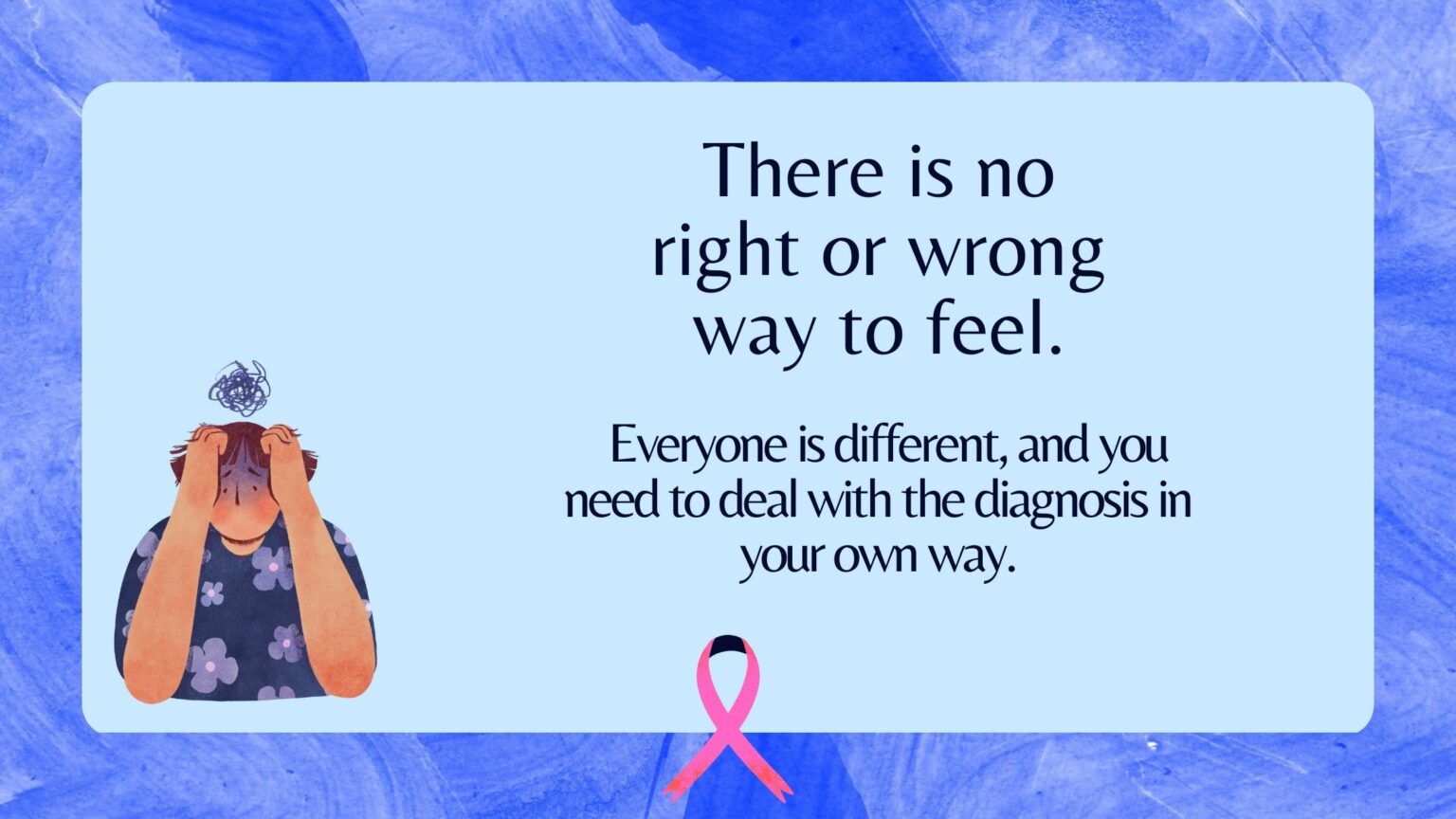
5. Engage in physical activity
It’s a known fact that exercise improves mood for everyone. It releases feel-good hormones that create a sense of calm and give an energy boost. The effect is the same for women with cancer.
There’s sufficient evidence that moderate-intensity physical activity reduces anxiety and symptoms of depression both during and after cancer treatment. Consult your healthcare team to determine what type of exercise you can incorporate into your life safely and without overtaxing your body.
6. Build a sense of hope
A simple but very effective way of dealing with gynaecological cancer related stress is to retain your sense of hope. You can do it by:
- Spending time in nature
- Planning your days as you did before
- Not limiting what you do just because of the condition
- Listening to the motivating stories of other cancer survivors and how they lead active and full lives
7. Accept help
For many women, even attempting to do household or maternal tasks while recovering from cancer treatments is challenging. This is the time you need the most support and concern. And if you are afraid to ask for help, you’ll be burdened with the greatest strain. So, actively ask for help. Keep in mind that family and friends may be willing to help, but may not know how.
The Takeaway
Never discount the psychological impact of cancers.
It creates a cauldron of emotions that you and your loved ones are not used to. Moreover, feelings and moods can change from one day to another or even from one hour to the next.
All of it is normal.
Take steps to deal with emotional fallout just as you do for the disease, and your mental health and quality of life will improve!

Note: The article offers general guidelines, not medical advice. Get in touch with a licensed mental health professional if you or your loved ones may be suffering from the stress of gynaecological cancers.
